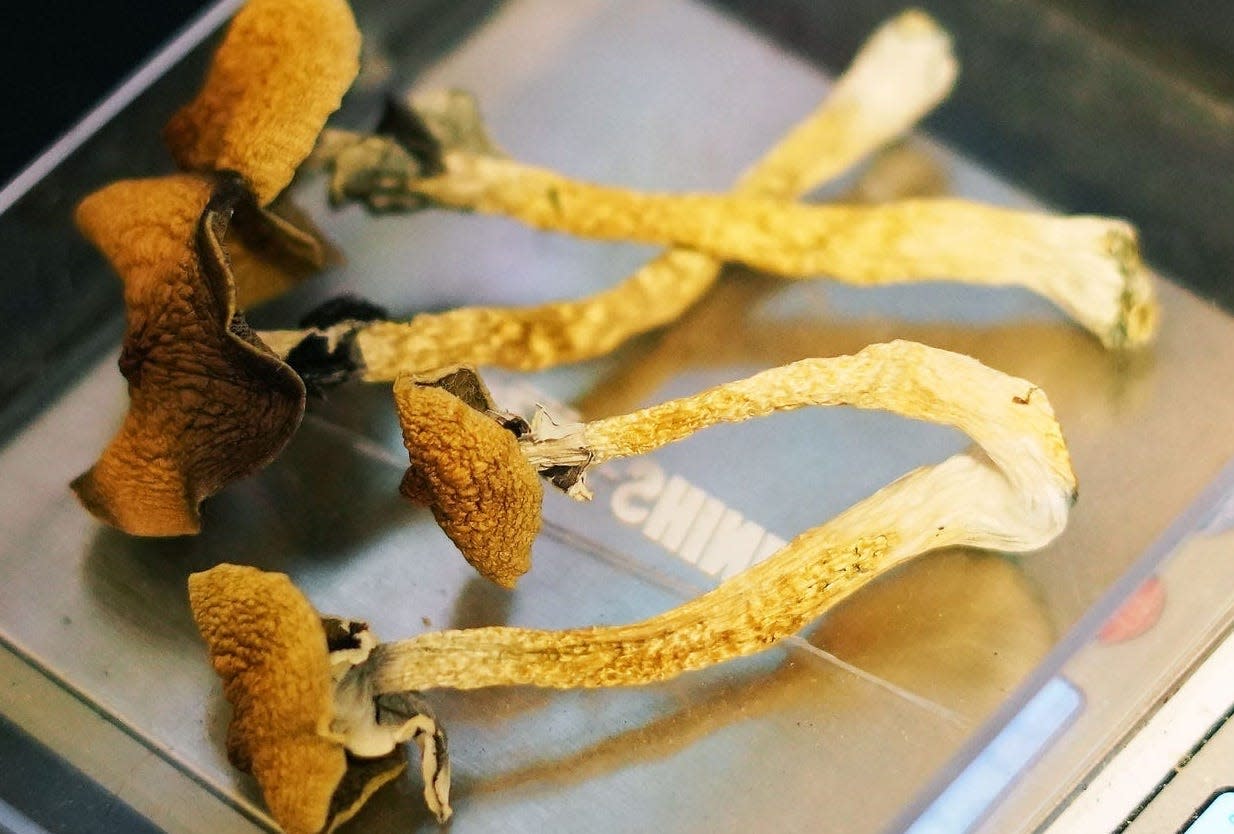Keizer may ban psilocybin 'magic mushroom' treatment centers

Keizer City Council is set to vote Monday on whether to ask voters in November to let them ban psilocybin therapeutic treatment centers within their city limits.
In 2020, Oregon became the first state in the nation to legalize the therapeutic, supervised use of psilocybin after 56% of voters approved Ballot Measure 109. Psilocybin is the active hallucinogenic ingredient in what are commonly referred to as magic mushrooms.
On Jan. 2, the Oregon Health Authority is expected to begin accepting applications for licenses to manufacture, deliver and administer psilocybin in the state.
Proponents of the measure say using psilocybin therapeutically helped them work through depression and PTSD following military service and terminal cancer diagnoses.
The approved measure allows counties to opt out if they get approval from local voters.
Polk County is also considering a possible ban on psilocybin centers. County staff said the issue with be discussed Tuesday at the 9 a.m. public work session in the courthouse conference room, 850 S. Main St., Dallas. It can be viewed live on the county's YouTube page.
The City of Salem and Marion County officials did not immediately respond to inquiries on whether they were planning to pursue similar ballot measures.
The opt-out loophole is causing confusion, and concern.
More:Voters pass Measure 109, making psilocybin 'magic mushroom' therapy legal in Oregon
Questions about this issue were raised several times during the first public listening session hosted Wednesday by the Oregon Health Authority and its new Psilocybin Services section.
Facilitators are paying thousands of dollars for training, one participant said, asking what could be done if counties opt out.
Several county commissioners, mostly in rural areas, have recently decided to put psilocybin center bans on their local ballots in November.
The trend is similar to one in 2016 when the state gave local governments the ability to opt out of legal cannabis sales, Oregon Public Broadcasting reported. Many eastern Oregon cities and counties banned cannabis sales initially, but some communities saw a shift in opinion after cannabis became a tax boon for municipalities once it was legalized.
Last year, Mill City voters overturned a measure that banned cannabis sales in that community.
Creating new rules
Wednesday’s public listening session allowed Oregon residents to comment and ask questions about the new psilocybin program. Oregon Psilocybin Services said it will post online responses to the questions in the coming weeks.
Under the measure, only licensed facilitators can possess and administer psilocybin services. Clients, who must be 21 or older, must consume the substance at an approved site under a facilitator’s supervision.
The measure directs OHA to license and regulate the manufacturing, sale and provision of psilocybin services. It also created Oregon Psilocybin Services, a new section housed within the Oregon Health Authority, to oversee the creation and implementation of a new regulatory framework.
OPS, still in its two-year development period, is aiming by year’s end to establish the rules on psilocybin facilitator licensure and training, case management, compliance and product tracking, among others.
The Food and Drug Administration has named psilocybin a “breakthrough” therapy for severe depression. The designation can expedite the development of drugs that intend to treat serious conditions and that could substantially improve upon available therapy based on preliminary clinical evidence.
Outside of certain scientific research contexts, however, the substance remains illegal under federal law.
Keizer considers ban
Keizer is among the Oregon cities and counties considering an outright ban on the service centers.
During the Keizer City Council meeting July 5, Keizer City Attorney Shannon Johnson said he only recently found out that the state was preempting cities' abilities to place serious restrictions on the centers.
Several councilors expressed concern about how the centers would be regulated and how they would ensure people were not under the influence of drugs when they left.
"This is totally new territory for me, so help me out here — what happens when a person leaves?" Mayor Cathy Clark asked. "Is this going to cause a public safety issue for that individual and the community?"
Johnson said the Oregon Health Authority said there would be measures in place to prevent that, but the specifics remain unclear.
Although Measure 109 passed statewide, the majority of voters in Marion and Polk counties voted against it. According to city officials, all five Keizer precincts voted against it.
Johnson stressed that the November election would be the last opportunity to ban the centers before they became officially legal.
The council unanimously passed the motion directing Johnson to craft a draft ballot measure and prepare other documentation for banning psilocybin products and centers to send to Keizer voters in November.
On Monday, the council will vote again on whether to adopt a resolution to place the ban on the ballot. The public meeting begins at 7 p.m. in the Robert L. Simon Council Chambers, 930 Chemawa Road N.
This story includes reporting from Associated Press reporter Claire Rush.
For questions, comments and news tips, email reporter Whitney Woodworth at wmwoodworth@statesmanjournal.com, call 503-910-6616 or follow on Twitter @wmwoodworth.
This article originally appeared on Salem Statesman Journal: Keizer may ban psilocybin 'magic mushroom' treatment centers

